Intergenerational exchange project in Upper Clapton during Covid-19
Curious to know how retirement housing residents had been coping with shielding from coronavirus for months alone, students attending a Hackney primary school engaged in a heart-warming exchange of voice-recorded letters with them.
Right. Map of gatekeepers. To function, this participatory research practice depends on a network of multiple gatekeepers. The layers of gatekeepers accrued because of Covid-19. The researcher had no contact at all with those participants who undertook the tasks using the cultural probes. The layers of gatekeepers, both institutions and individuals, granted access to the task participants. The gatekeepers take on a role defined by the researcher as a participant in that they coach the task participants through the process.
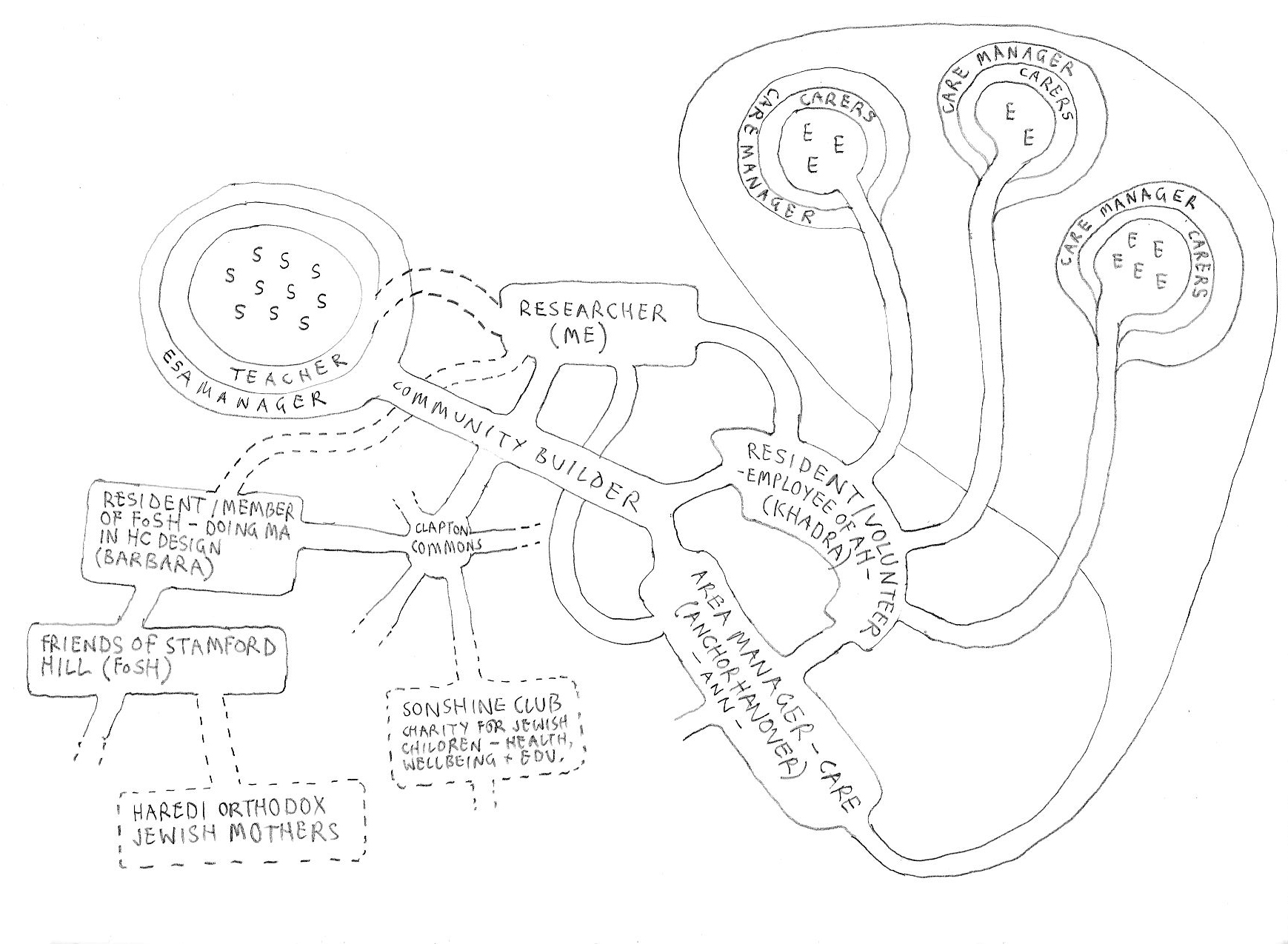
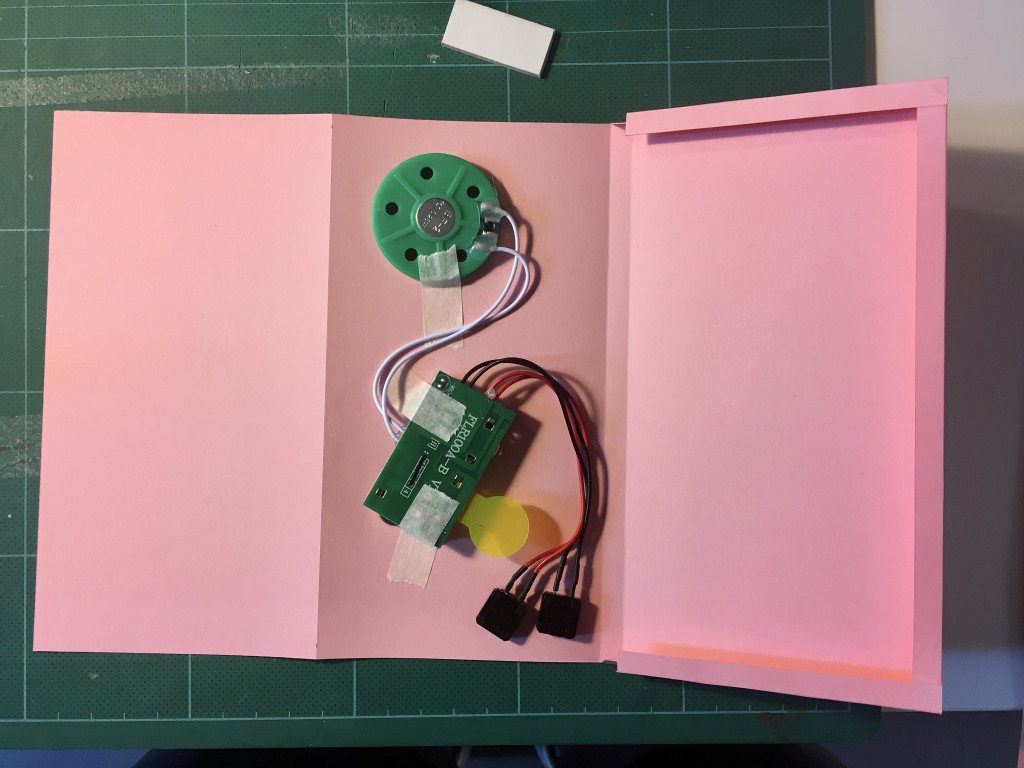
Organised during the summer by Clapton Commons in collaboration with Tyssen School and retirement care provider Anchor Hanover, this intergenerational exchange used participatory design methods to bring together two communities isolated from each other by the pandemic – retirement housing residents and primary school students. Creative methods devised by Royal College of Art PhD student Nick Bell yielded a space for contactless connection the organisers thought might support the wellbeing of participants at a time when it was not known how they would be affected by the social, economic and health impacts associated with the virus.
Right. Front covers of folded-paper carriers of sound modules decorated by Year 9 students of Tyssen Primary School. Using voice recorded messages, students introduced themselves and asked how residents of retirement housing living close by were coping with Covid-19 lockdown.
How it worked
Once residents had confirmed their interest in taking part to care visitors – the only people they were able to see at the time – the project could begin. Year 6 students, each given the name of a participating resident, devoted time, care and attention to making imaginatively decorated, highly individual messages for them. Wrapped inside each small mobile-phone sized paper package was a thoughtfully worded voice-recording, through which students introduced themselves, described their experience of lockdown, how it made them feel, and asked residents how they were managing with it.
Student’s message-making activity was coached at Tyssen School during ‘writing for purpose’ classes. Teacher John Isaac, declaring that with the applications of literacy changing, he was pleased for his students to have opportunity to write, draw and speak in response to extraordinary circumstances that are live and can be shared with others unlike themselves.
Once completed, each student message-package was distributed to each resident by Anchor Hanover Wellbeing Coordinator Khadra Samantar. A blank message-package was sent with each student-completed package for residents to make their replies back to students. Using the blanks, residents from three retirement housing estates not far from the school, supported and coached by Khadra, reciprocated by making voice-recordings for students. These response packages, some of which were illustrated with drawings and adorned with stickers, were delivered to students at the school during the last week of the summer term.
The conversations
Through their voice recorded messages, students conveyed their experiences of lockdown. “I felt lonely… weeks soon turned into months and that’s when I wished to go back to school. You know, I missed my friends, the teachers, and I thought I would never say this, but I missed school in general” admitted one student. While another reflected on the benefits of being at home: “but at least I got to spend time with my parents”.
Students were curious to know how retirement housing residents were feeling under lockdown. “When you found out that your family members couldn’t come to visit you, what did you feel?”, a student enquired. One resident’s reply was reassuring: “I’m not too sad about lockdown as I keep busy knitting and doing criss-cross and codewords.”
Students wondered how residents kept themselves occupied while alone: “I wonder how you’re doing… I really enjoy dancing – do you have any hobbies?” Touched that a young person was spending time thinking of her, one of the resident’s responses was extremely cheerful: “I’m a seventy-three year old lady, a lady of pleasure [laughs loudly]… you already made my day.”
One student, feeling apprehensive at leaving primary school, chose to seek advice on what secondary school is going to be like. Others were keen to offer residents reassurance: “I know you might be a bit scared, but it’s ok.” While another was very optimistic about the future: “we are going to get through… I think that we have been very safe, actually.” In response to this attention, all residents were very keen to express their appreciation: “…its nice to know you think about us elderly.”
Feedback from participants
When students were asked by their teacher John Isaac if they thought other children would enjoy participating if this project was run again, they were unanimous in thinking they would. Speaking for participating residents, Wellbeing Coordinator Khadra Samantar affirmed that they were surprised and touched to receive a message from a student personally addressed to them. Next time though, Khadra suggested, residents would find it easier to prepare and produce their replies if they had more time to respond. The end of term deadline came a little quickly for a few of them.
Looking for opportunities to do this again
Students and residents got to keep the message packages they received – souvenirs, poignant snapshots of unprecedented times captured, crafted and shared with authenticity, perception and wit.
Clapton Commons, Tyssen School, Anchor Hanover and Nick Bell are all keen to use these kinds of playful, inclusive methods through which communities of difference across the neighbourhood, isolated by the pandemic, can be brought together safely obeying physical distancing rules, to discuss issues and ideas relevant to all. They are actively on the look-out for opportunities to run projects like this one during Coronavirus where local individuals and groups are looking to address questions impacting their lives using approaches bringing them into contactless sociality. Interested parties can contact Clapton Commons’ Community Builder Marcus Duran.
Left. Battery-powered sound module held inside folded-paper carrier. Operated by a record and play button at the end of the red and black cables respectively.
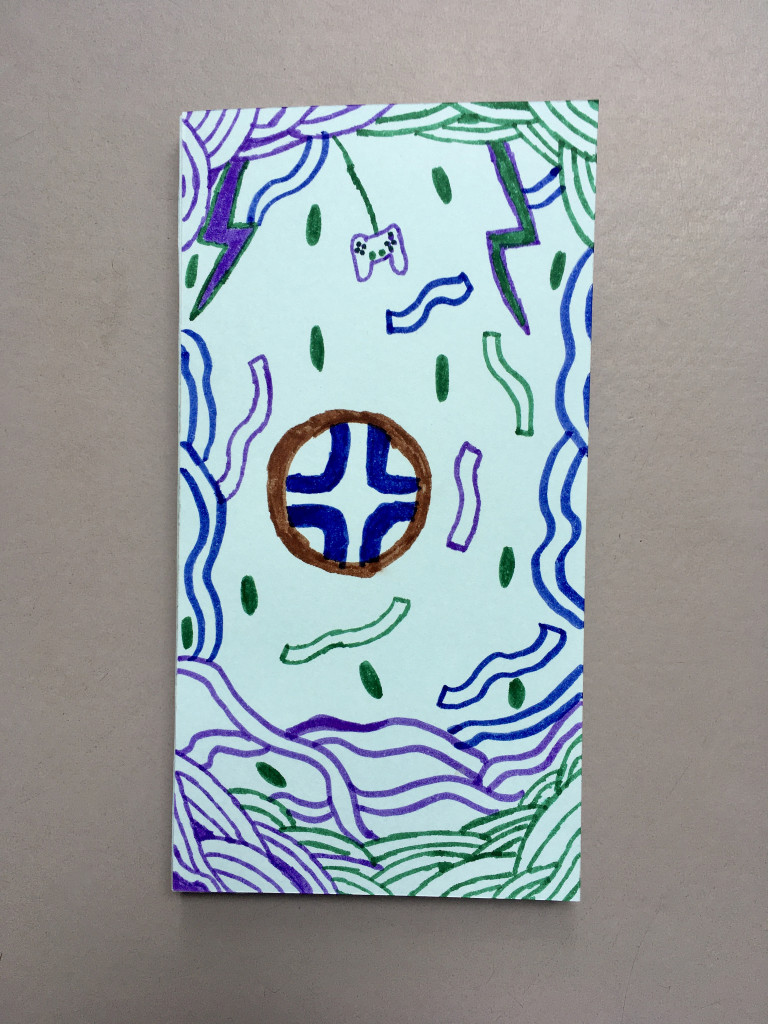
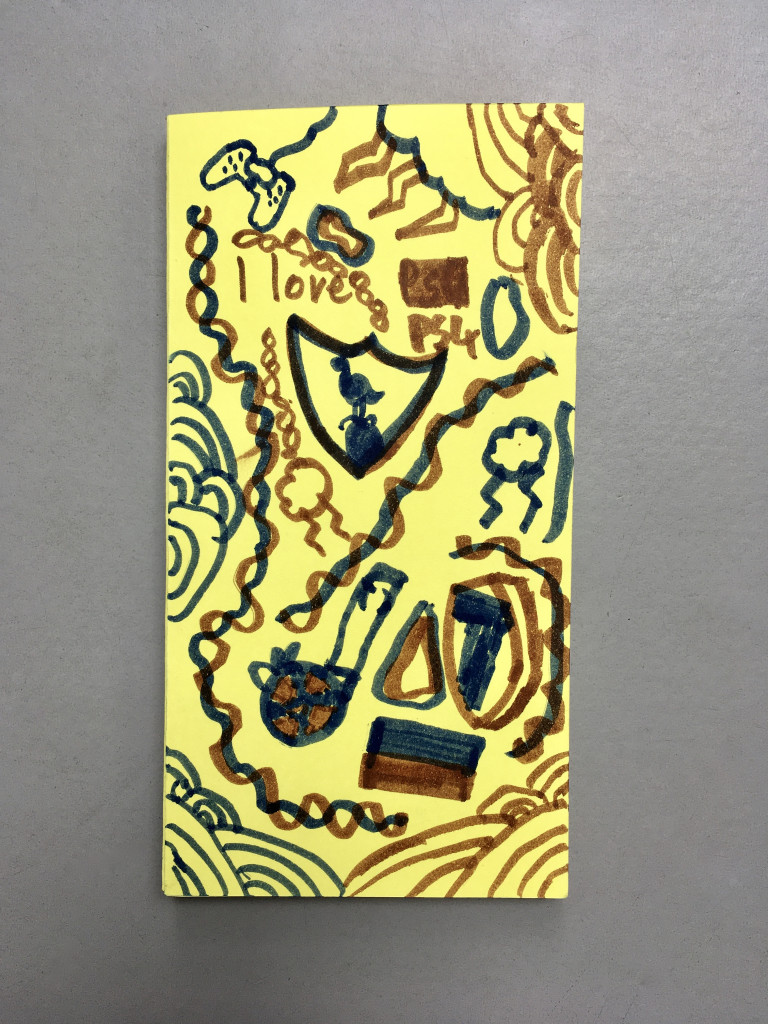
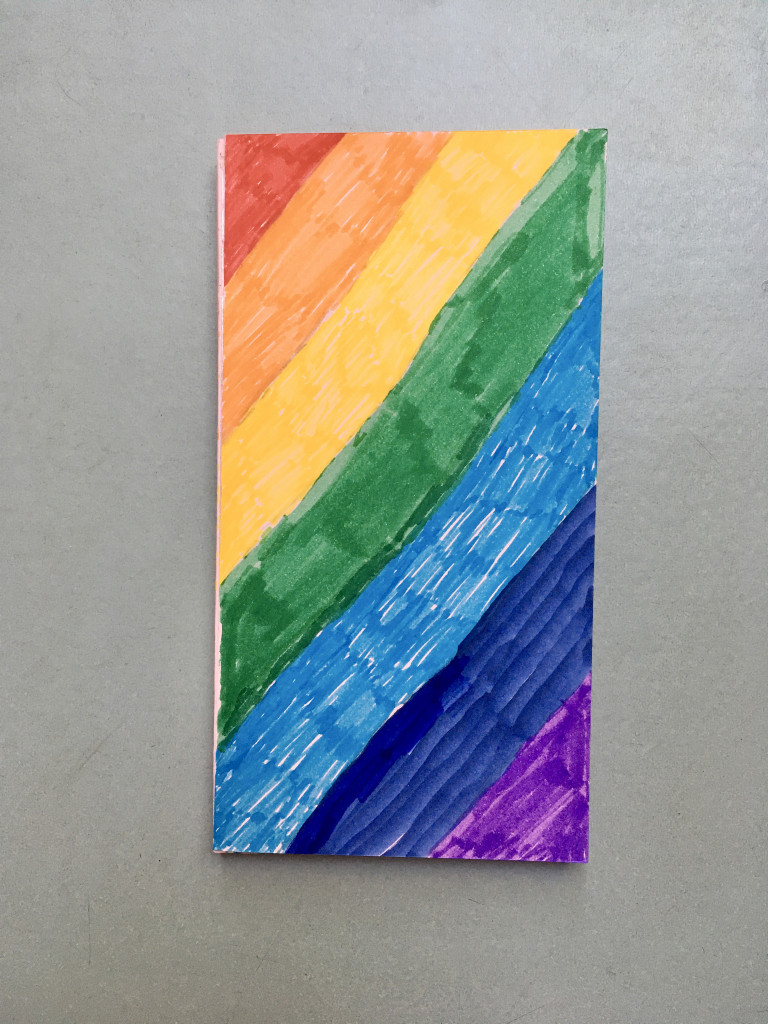
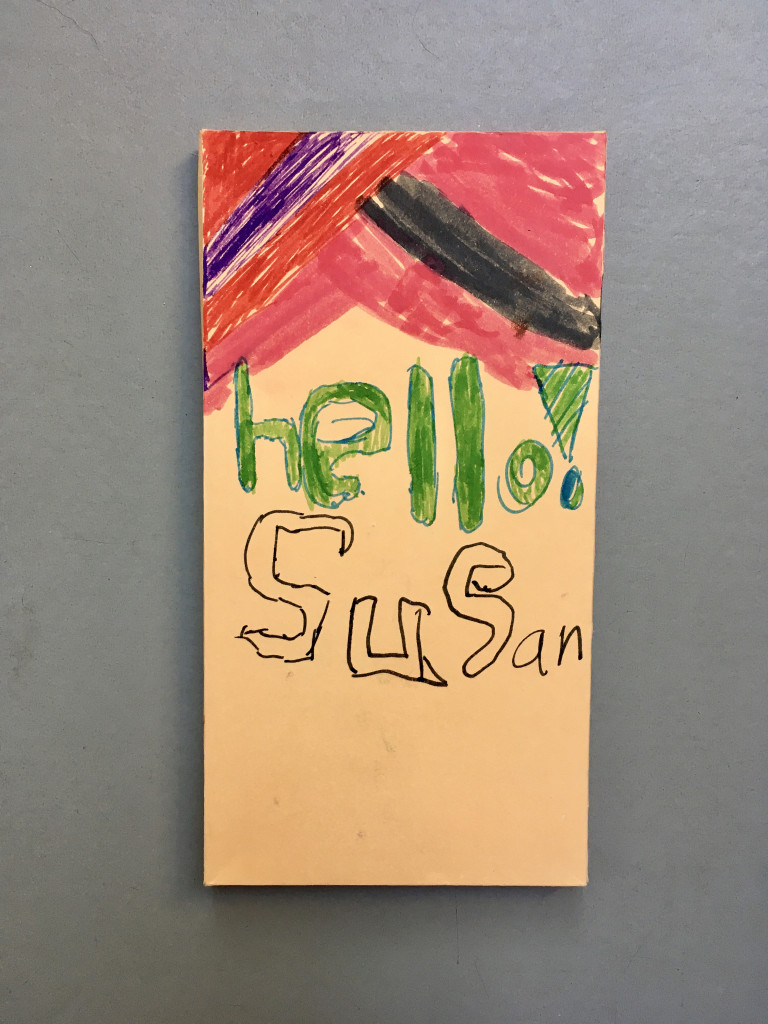
Conversation: where critical friends of itinerant space are invited to comment on journal submissions as part of an ongoing research dialogue.